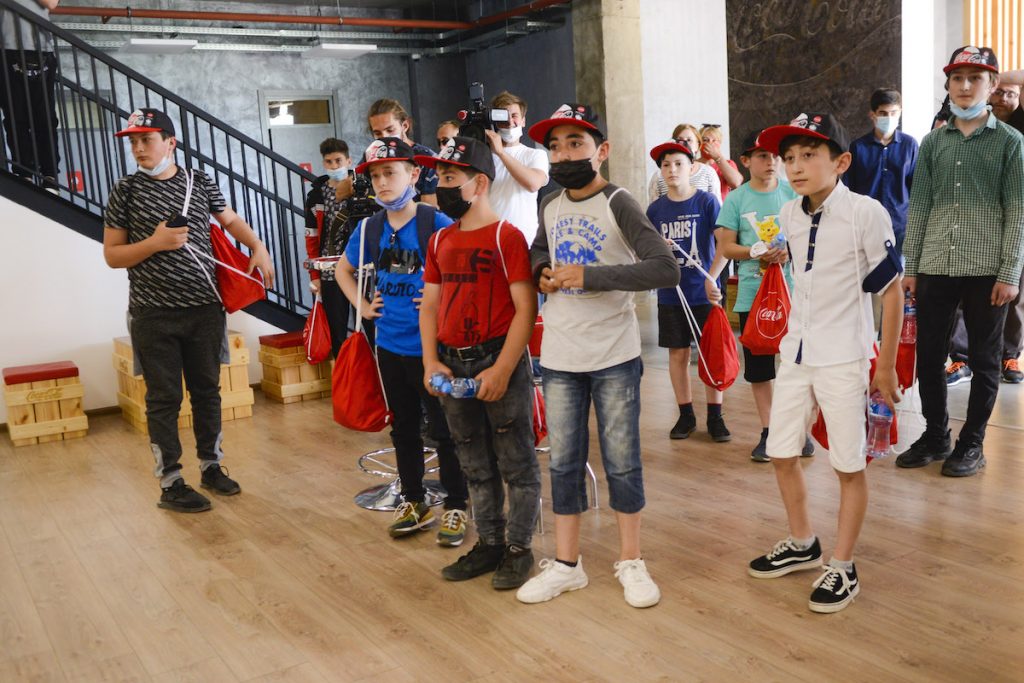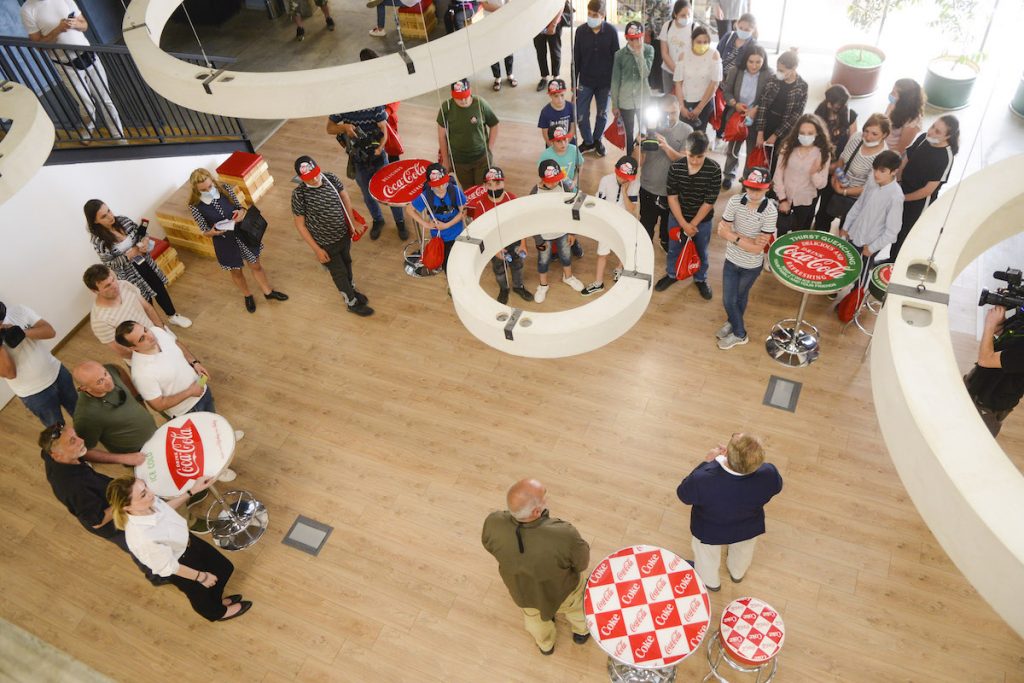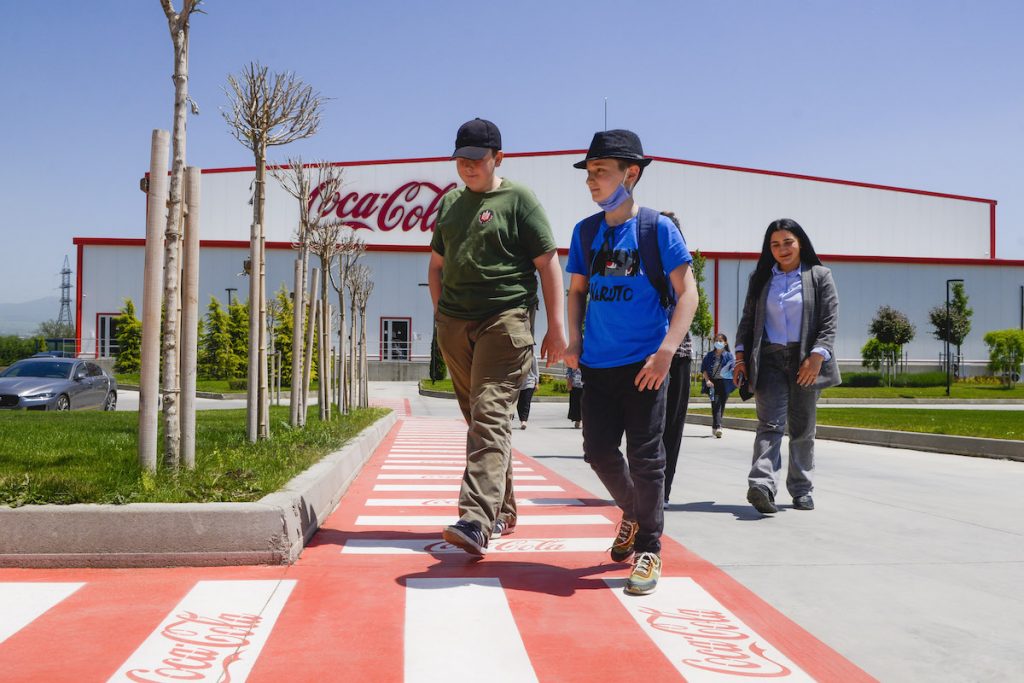Testimonies of children living near the occupation line
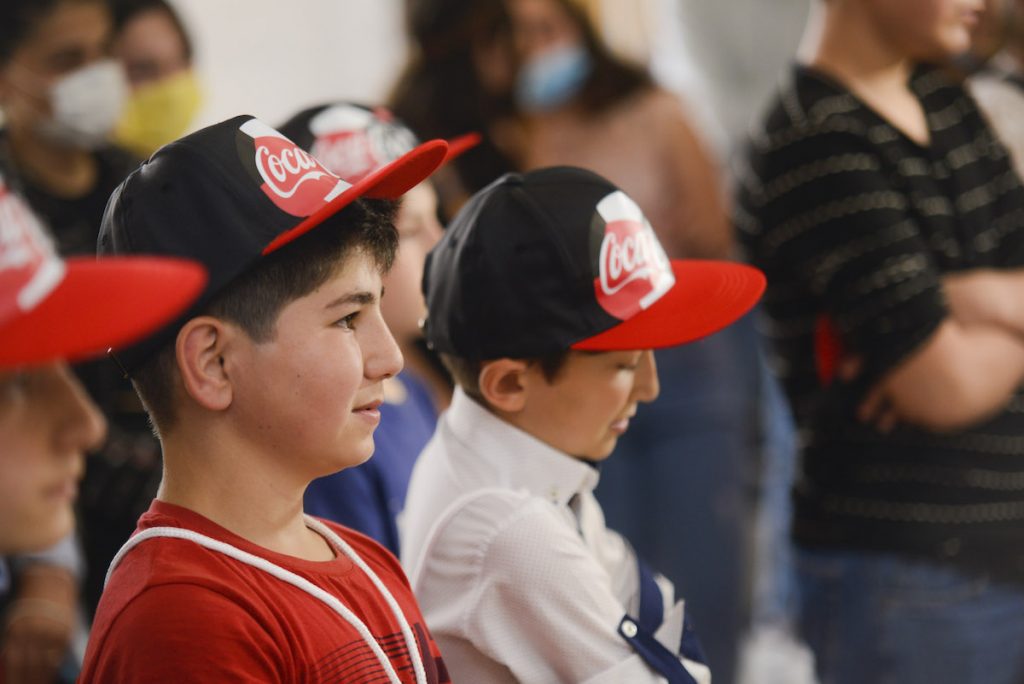
“We cannot change their past, but we can change their future” – under this slogan, 24 children living near the occupation line in Georgia will go to the Strength in Unity summer camp.
The place for the camp has already been chosen. With financial support from Coca-Cola Bottlers Georgia, schoolchildren aged 12 to 15 will go to the Borjomi Gorge for two weeks.
The selection of camp participants began on April 9. The candidates were selected based on the essays they wrote. The competition selected 24 young residents from Khurvaleti, Atotsi, Variani, Gugutiantkari and other villages located near the occupation zone.
In their essays, most students talk about their worries and concerns, but they all have something in common – fear of occupation strives for happiness, and loves for their homeland.
David Tsertsvadze, 13 years old
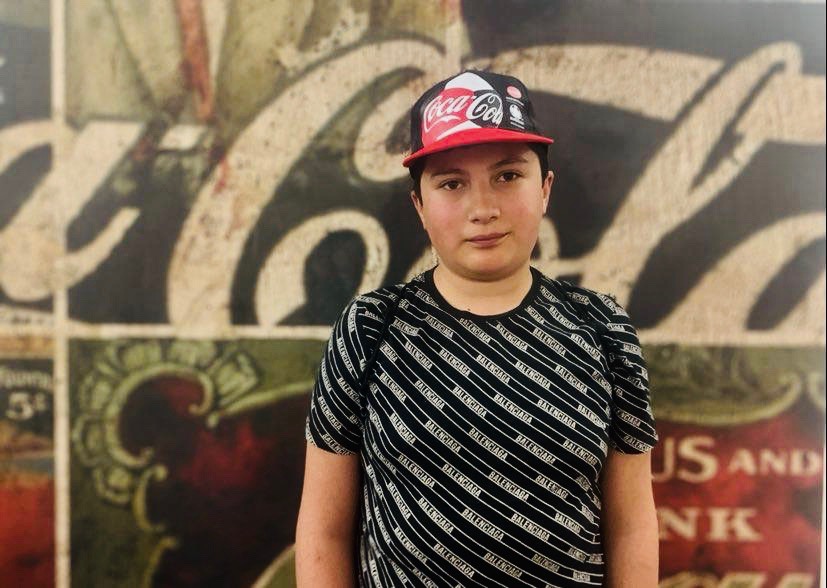
In 2013, my paternal grandfather died. Relatives came to the funeral, and we wanted to take the opportunity to see my second grandfather, Data. His house was not behind the barbed wire back then [the boy’s grandfather, Date Vanishvili, was a resident of Khurvaleti. After a barbed wire divided the village into two, Vanishvili’s house was left behind the line of occupation. Date refused to leave his house and died in March 2021 – JAMnews].
My parents were kept in the Tskhinvali isolation ward for several days, and I was released because I was little. I spent those days with Grandpa Data. He told me all the time that these were our lands and that sooner or later everything will return to how it used to be before. My essay is dedicated to this story about me and grandfather Data. When I hear the word “homeland”, I immediately think about him and really hope that one day what he told me will come true, and our village will never have barbed wire again.
Sophie Markieva, 15 years old
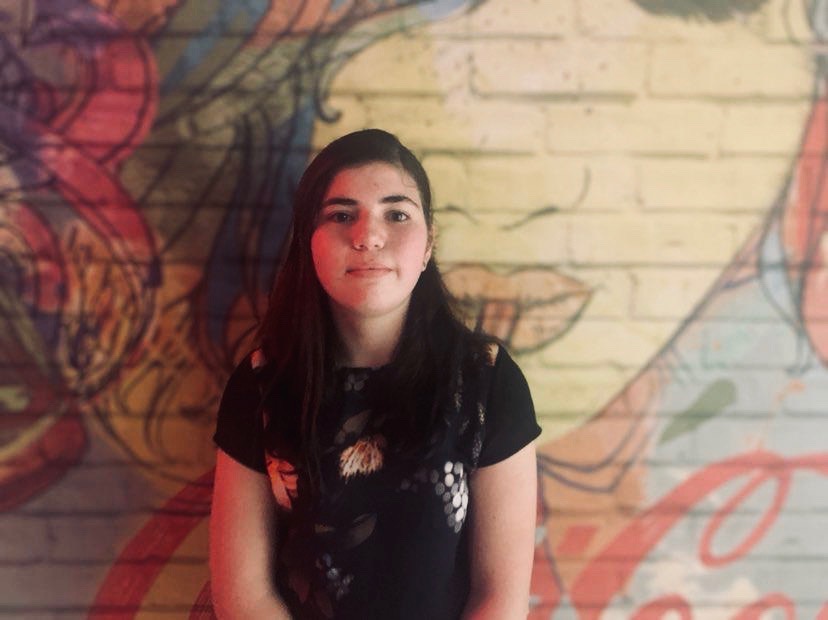
I wanted to talk about happiness because very few people around me are happy. I understand that childhood is a happy time, but I myself spent those years in the countryside, in boredom and fear.
After the August 2008 war, I lost many relatives. Because of the occupation line, I don’t even see them. A lot of good and bad news happens in my family, and I would like to share it with my relatives, but I cannot. Because of this, I can’t be as happy as I would like to be.
This is what I write about in my essay, and also about the fact that “homeland” is the warmest and sweetest word for me, and I really hope that one day when I say this word, I will think about happiness and unity, and not war and occupation.
Nino Maisuradze, 13 years old
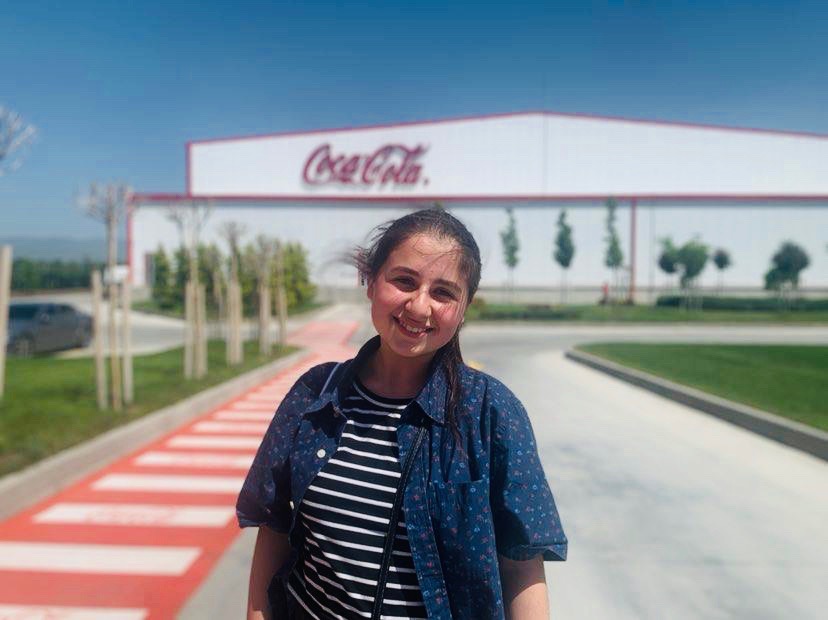
I live in Mereti. In our village, playing ball is fun for me and my peers. Our peers live differently in the city, but for us everything is different. City children go to cafes, to the cinema, but we entertain ourselves. My friend and I both got into this camp, and I am very happy. Something new and good will happen in my life.
I wrote about the problems of youth. I want everyone to enjoy life and enjoy their childhood. I want a happy life and I don’t want to be afraid of war.
David, Sophie, Nino, and other schoolchildren were brought to the Coca-Cola Bottlers Georgia plant by anti-occupation activists. They also talked about how the idea of creating a camp first appeared.
“This idea came to me when I was with one of the families in the village of Variani. Children also lived in that house, and after talking with them, we realized that young people need projects like this, instead of one-time gifts. They need to make new friends, discover their abilities, gain new knowledge and, most importantly, have fun”, says David Katsarava.
The president of Coca-Cola Bottlers Georgia became the children’s guide and showed them around the plant.
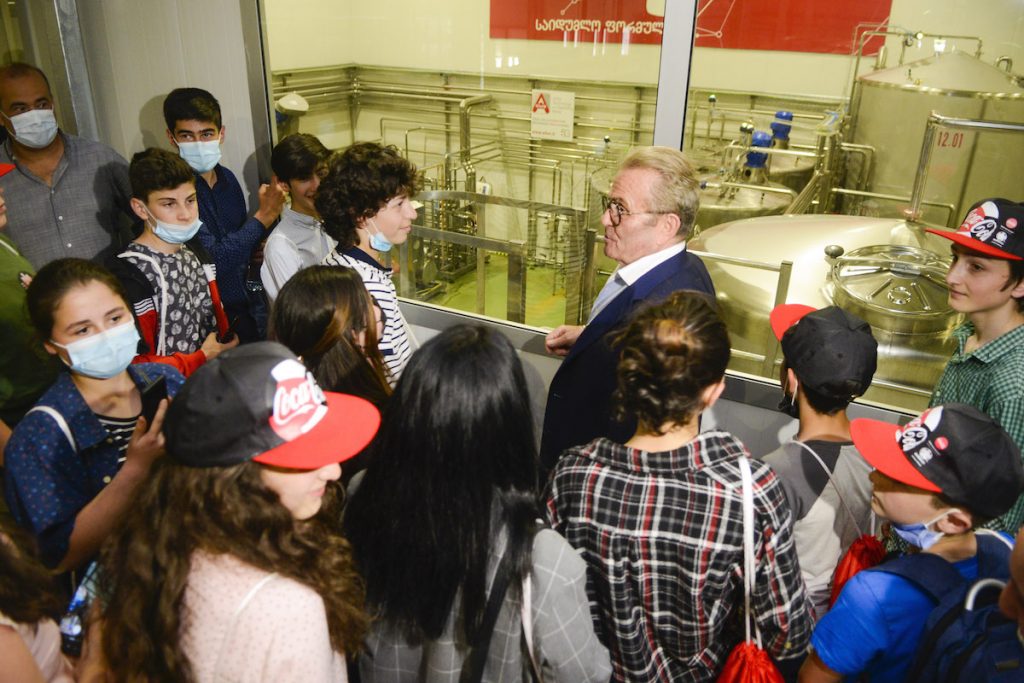
“I want these days to be unforgettable for you. The camp offers sports, entertainment and educational activities. There you will find new friends, and I am sure you will have new ideas on how to make your life better”, said the president of the company Temur Chkonia
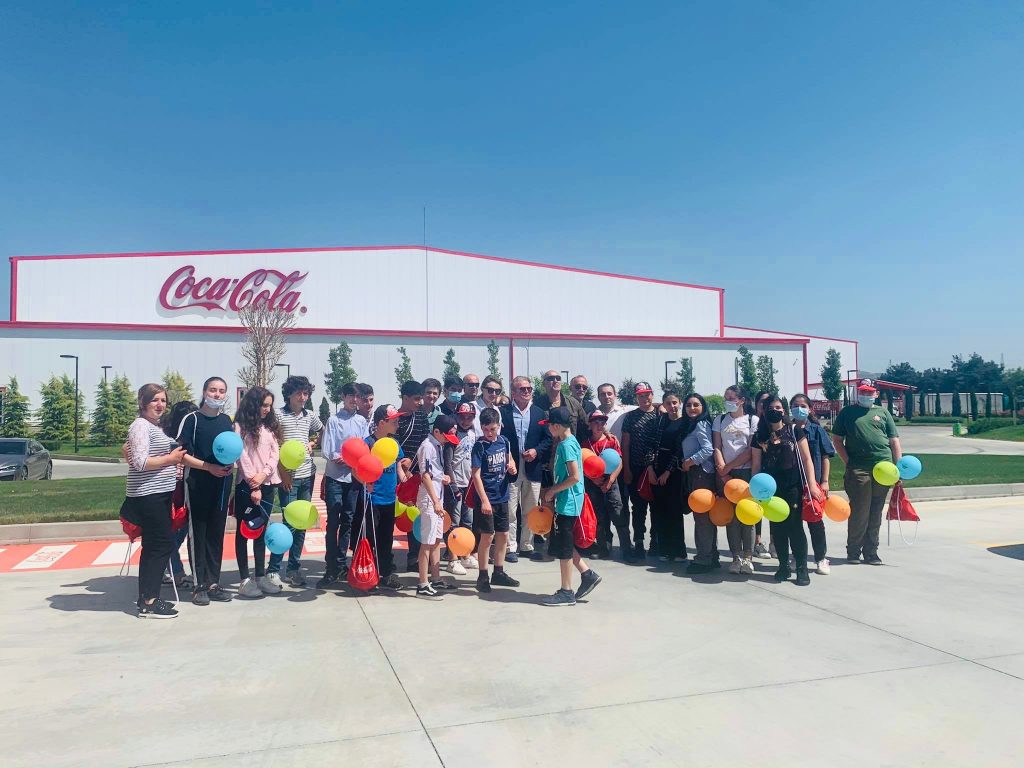
After a short tour around the factory, gifts, and lunch, the authors of the project, partners, and schoolchildren also took some memorable photos in the courtyard and said goodbye to each other before meeting again at the camp.
